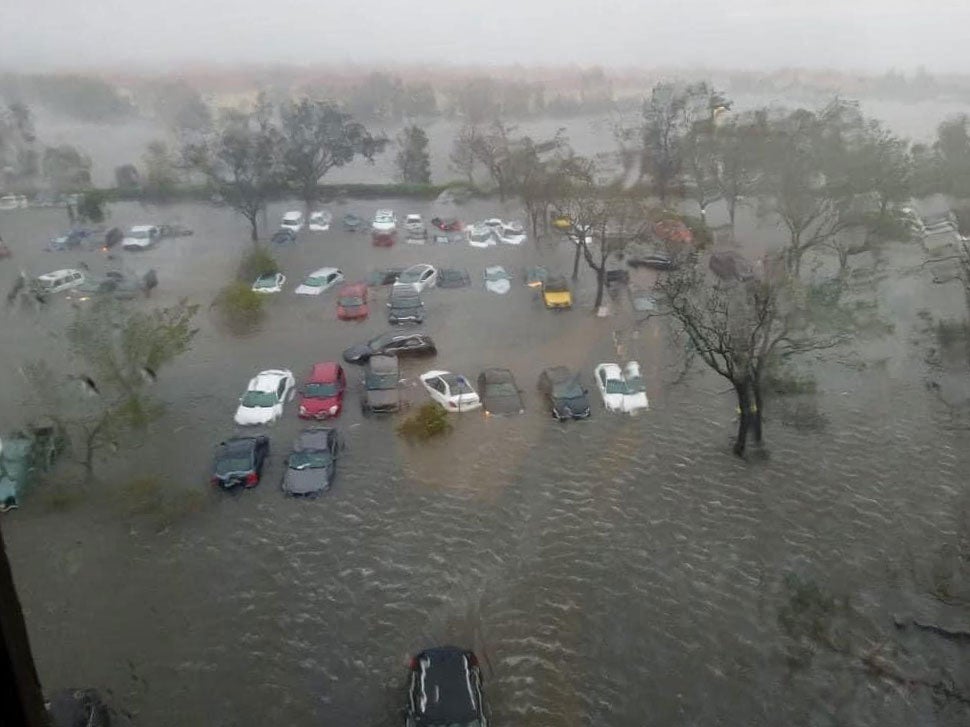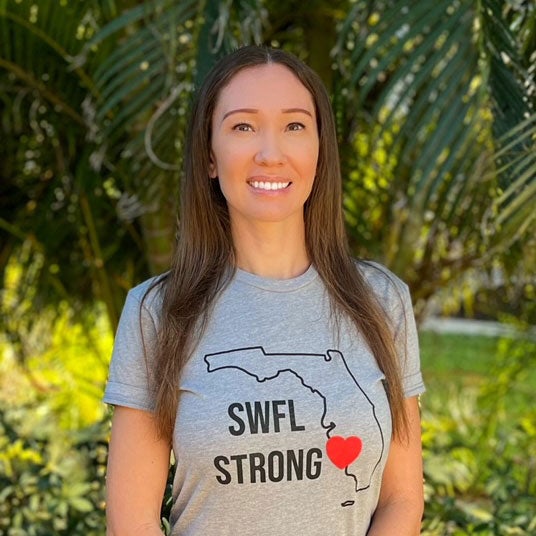
Hurricane Ian’s wind speeds clocked in between 130-157 mph when the storm hit Fort Myers, Florida last September. The Category Four hurricane devastated the community, leaving people without power and water for days and, in some areas, weeks.
“In the [Neonatal Intensive Care Unit] where I work, we transferred 70 babies to other hospitals all over the state of Florida,” said soon-to-be double Bronco Jovita Gardner (’03, ’23). “It’s a fire hazard to keep patients at the hospital with no ability to use the sprinkler system, not to mention the logistics of trying to care for patients without any running water.”

Gardner is a registered nurse and a student in the School of Nursing’s online bachelor’s completion program. She also lives about a mile from the Gulf of Mexico where the storm surge – that is, gulf water pulled in with Hurricane Ian as it moved inland – caused most of the destruction.

Although her home didn’t flood, many houses in nearby neighborhoods did, forcing families to completely rebuild before they could move back in.
“The devastation was so widespread and there were so many people that needed help,” she said. “It was kind of like ‘Where do I even start?’
For Gardner, the answer was right down the street.
A nurse’s role in the aftermath
After the storm, local organizations posted information online about where to find resources such as running water for showers or laundry. But many elderly people in Gardner’s neighborhood don’t frequent the internet or were without power.

So, on regular evening walks with their dogs, Gardner and her husband checked in on people who she knew didn’t have much local family support, an act outside of her typically reserved nature.
“We were just walking around as neighbors and I kind of went into nursing mode,” Gardner said. “Making sure they knew that there was support out there and passing along that information.”
She also found herself instinctively asking about more than just people’s physical health. In homes without power, she asked things like, “What are you doing to entertain yourself?”
Applying a holistic perspective to her community’s well-being in “nurse mode” turned out to be an unconscious application of her coursework.
“It was kind of ironic that I just so happened to be in my community health nursing class when this happened,” she said. “I was able to put it to good use and utilize what I learned.”
Real-world education impacts her future
As an online student who also works full time, Gardner said it’s easy to feel “almost detached” from the rest of the world, sitting alone in front of a computer. But she found herself “thrust out there into the community” thanks to her class and Hurricane Ian.
“This was probably the most productive online community health nursing class that I could have taken because of the circumstances,” she said.
“Being able to actually implement what I learned into a real life setting? That’ll stay with me for a long time.” Jovita Gardner
So long, in fact, she’s considering the impact it may have on her career.

After seeing firsthand “the good that nurses can do out in the community,” Gardner thinks she may want to take more of a community nurse role in the future.
“Getting out there into the community was a very positive experience for me,” she said. “I thought I’d be a hospital nurse for life, so that definitely has affected my possible career path moving forward after I finish my bachelor’s.”
Gardner is on her way to being a two-time Boise State alum. She first earned her associate degree in nursing in 2003 and is expected to graduate with her bachelor’s in nursing in December 2023.
Support Student Excellence
The School of Nursing is the recipient of generous philanthropic support by many friends, foundations, and alumni. We welcome your involvement with the Boise State Alumni Association in a variety of ways, including leadership, philanthropic support, service, and suggestions to enhance the achievement of our vision for excellence and our connections with alumni.
Support Nursing Students at Boise State